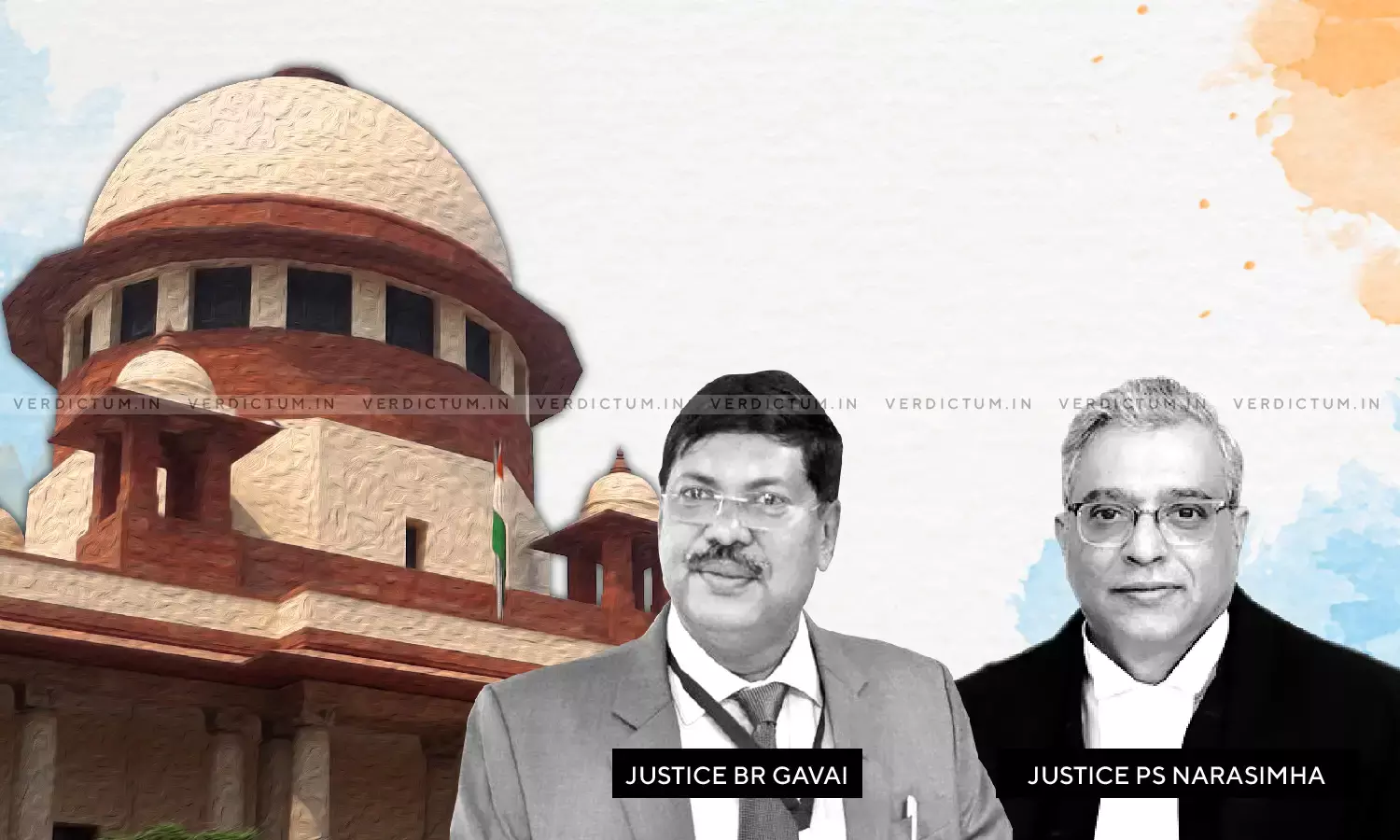Simple And Necessary Inquiry Required For Proper Adjudication Of Application For Discharge U/s. 227 CrPC- SC

The Supreme Court has observed that it is not a roving inquiry but a simple and necessary inquiry is required for the proper adjudication of an application for discharge under Section 227 CrPC.
The Bench of Justice BR Gavai & Justice P.S. Narasimha was hearing a plea of a 72-year-old man who was subjected to an inquiry while he was in service and had now retired. It was alleged by the Prosecution that the Appellant while being in service possessed assets disproportionate to his known sources of income.
The High Court in the year 2016 dismissed the Appellant's application for discharge filed under Section 227 CrPC.
The Appellant was employed in the Bihar State Financial Corporation (BSFC) as an Assistant General Manager. After serving for a period of 13 years, a complaint came to be filed against him for allegedly having three houses and two pieces of land in Bihar which according to the complainant was disproportionate to his sources of income. After a detailed investigation, the allegations were found to be false, however, despite this, the investigation was kept pending against him.
Later when the Appellant joined ONGC, an FIR was registered against him under the Prevention of Corruption Act, on the same allegation that possessed assets disproportionate to his known sources of income. A charge sheet was eventually filed after seven years after the registration of the FIR.
The chargesheet indicated that he earned a total income of Rs. 3,01,561 and incurred an expenditure of Rs. 5,24,386 during the check period. Therefore, the charge against the Appellant was of having amassed Rs. 2,22,825 disproportionate to his know sources of income.
The chargesheet indicated two components of his income, being i) savings of Rs. 1,13,081 (1/3rd of his salary), and ii) home and car loan from BSFC worth Rs. 1,88,480. On the other hand, the charge sheet included six components of his expenditure, being – i) payment of Rs. 2,26,500 towards the construction of his house, ii) general expenditure during the check period of Rs. 24,800, iii) amount in bank deposit worth Rs. 55,000, iv) loan repayment of Rs. 53,467, v) LIC deposit worth Rs. 6,057, and vi) estimated value of articles found during a search conducted on 21.02.2000, as being Rs. 1,58,562.
The Appellant then filed the application for discharge under Section 227 CrPC alleging that there were glaring mistakes in the calculation before the Special Court (Vigilance) Patna, which was dismissed.
The Appellant then moved the High Court which dismissed his application.
Aggrieved, the Appellant approached the Supreme Court.
Senior Counsel Sunil Kumar appeared for the Appellant while AOR Abhinav Mukherji appeared for the Respondent before the Apex Court.
The issue that was dealt with by the Court was –
- Whether the Appellant was entitled to be discharged of the proceedings initiated against him under the PC Act.
The Court referred to Section 227 CrPC which deals with the provision of 'Discharge.'
The Bench noted that the threshold of scrutiny required to adjudicate an application under Section 227 CrPC is to consider the broad probabilities of the case and the total effect of the material on record, including examination of infirmities appearing in the case.
The Court further placed reliance on Sajjan Kumar v. Central Bureau of Investigation where the Apex Court had cautioned against accepting every document produced by the Prosecution at face value and noted that it was important to sift the evidence produced before the Court.
Furthermore, reliance was also placed on Dipakbhai Jagdishchandra Patel v. State of Gujarat, which summarized the principles of discharge under Section 227 CrPC.
The Court then proceeded to analyze the three heads of expenditure involved in the case as indicated in the chargesheet filed against the Appellant.
After analyzing the three heads of expenditure, the Court noted that objections did not require much scrutiny of the material on record which was not considered by the Special Judge (Vigilance) or the High Court.
The Court also noted, "The three heads of expenditure discussed hereinabove must be excluded from Appellant's total alleged expenditure during the check period. First, the Appellant's actual balance amount reflected in the Bank Passbook, i.e., Rs. 11,998, as against the purported account balance of Rs. 55,000, must be taken into account. Further, the second and third amounts, as indicated above, must be excluded from Appellant's total expenditure mentioned in the chargesheet. Accordingly, the total expenditure comes only to Rs. 2,69,355, and not Rs. 5,24,386, which is based on certain mistakes that we have indicated hereinabove."
Thus, the Court held that these facts clearly demonstrate that there is no prima facie case made out by the Prosecution and therefore the Appellant was entitled to be discharged.
Further, the Bench observed, "The Special Judge (Vigilance) dismissed the discharge application on the simple ground that a roving inquiry is not permitted at the stage of discharge. What we have undertaken is not a roving inquiry, but a simple and necessary inquiry for a proper adjudication of an application for discharge. The Special Judge (Vigilance) was bound to conduct a similar inquiry for coming to a conclusion that a prima facie case is made out for the Appellant to stand trial. Unfortunately, the High Court committed the same mistake as that of the Special Judge (Vigilance)."
Accordingly, the Court allowed the appeal and set aside the impugned judgment of the High Court, and discharged the Appellant.
Cause Title – Kanchan Kumar v. The State of Bihar
Click here to read/download the Judgment

